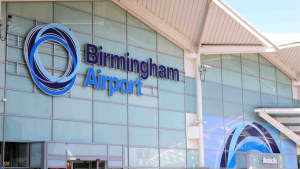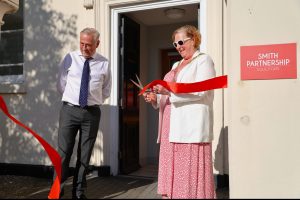MPC keeps interest rates on hold

THE Bank of England’s Monetary Policy Committee today voted to maintain the interest rate at 0.5%.
The decision is in line with predictions that the Committee would err on the side of caution, especially with concerns about rising inflation and fuel costs hampering the fragile recovery.
The Committee also voted to put Quantative Easing on hold, again as many analysts had been expecting. The Bank has so far pumped £200bn into the economy in an effort to free up cash frozen by the banks during the credit crunch.
The Bank Rate has now been frozen at its lowest ever level for almost 12 months, the change being made in March.
Commenting on today’s decision, Mark Smith, regional chairman at PricewaterhouseCoopers LLP in the Midlands, said: “Despite some debate that rising inflation may cause policymakers to move interest rates off their historic lows, given the fragile recovery in the economy and the amount of spare capacity currently in the system, this has not proved necessary. Looking ahead, we are likely to see rates remain on hold, at least in the short term.
“Given the committee’s decision to call a halt to its quantitative easing programme, over the coming months, Midlands businesses will be hoping that the £200 million stimulus continues to translate into further growth in the economy.”
In a statement today, the Bank of England said: “After a substantial fall in output, the United Kingdom economy recorded sluggish growth in the final quarter of 2009. Spending by households appears to have picked up a little, though that may partly reflect temporary factors. The rate of decline in businesses’ investment spending appears to have eased. And the world economy continued to recover, raising the demand for UK exports.
“CPI inflation has risen sharply to well above the 2% target, reaching 2.9% in December. That rise was largely accounted for by higher petrol price inflation and the reduction in the main VAT rate a year earlier dropping out of the calculation. Inflation is likely to have risen further in January, reflecting the restoration of the VAT rate to 17.5%. Pay growth has remained subdued.”
It said the considerable stimulus from the easing in monetary policy, the lower level of sterling and the recovery in UK export markets should together support domestic activity.
However, it added that credit conditions are likely to remain restrictive, while the need to strengthen public and private sector finances would also weigh on spending.
“On balance, the Committee believes that the prospect is for a gradual recovery in the level of activity. The recession has probably impaired the supply capacity of the economy, but the scale and persistence of the fall in output means that a substantial margin of under-utilised resources is likely to remain for some time to come. That is likely to mean that inflation will fall below the target for a period.
“In the light of the Committee’s latest Inflation Report projections and in order to keep inflation on track to meet the 2% inflation target over the medium term, the Committee judged that it was appropriate to maintain Bank Rate at 0.5% and its stock of purchases of government and corporate debt financed by the issuance of central bank reserves at £200bn,” it added.
Birmingham and Solihull business leaders expressed disappointment at the Bank’s decision to halt QE.
Will Rogers, the chamber’s policy advisor, said: “Although the decision to bring the £200bn programme to an end is not surprising, the economy is still fragile. A significant boost of another £25bn would have encouraged further business investment.
“The economy has only just achieved a 0.1%, when experts predicted it was expected to reach 0.4%. There are signs of recovery, but they are fragile. Manufacturing activity has recently hit a 15-year high but positive figures like this need to be sustained.
“Now is the time for organic growth, which is not helped by placing additional pressures on business through rate increases.”









